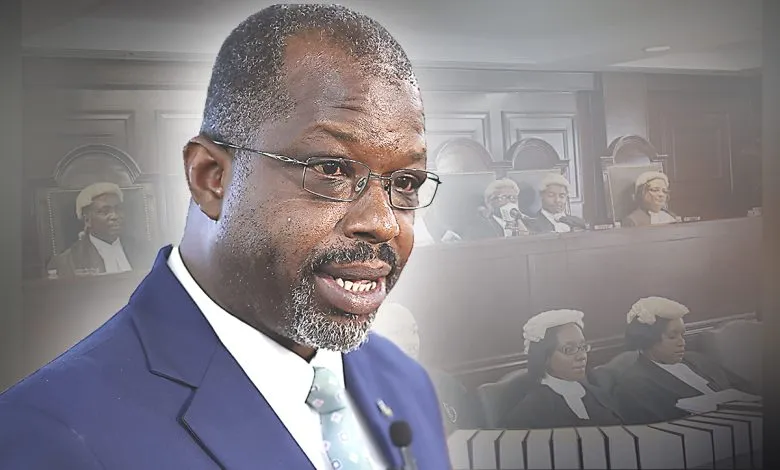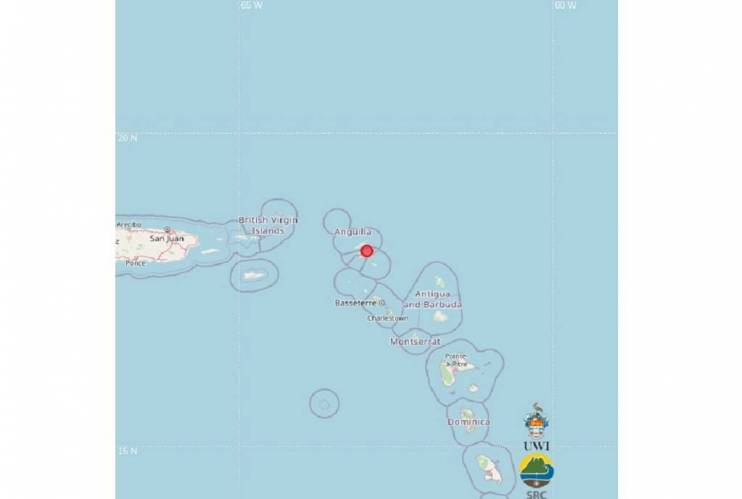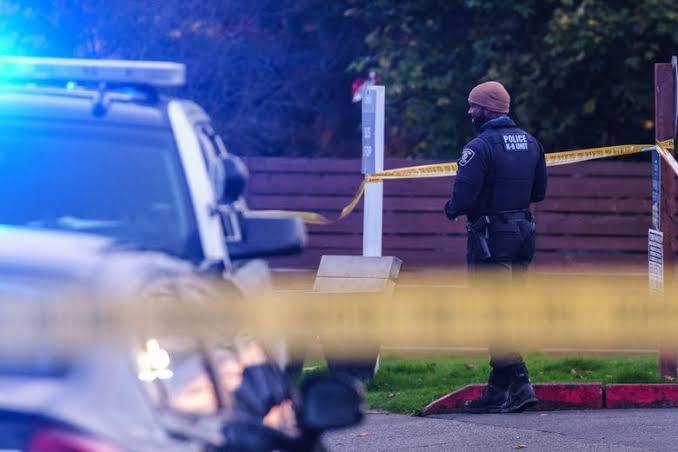Munroe defends Bahamian judges

Minister of National Security Wayne Munroe yesterday expressed disappointment in the criticism St. Vincent and the Grenadines Prime Minister Ralph Gonsalves made of Bahamian judges this week.
Munroe said he supported the Caribbean Court of Justice (CCJ) judged Jacob Wit’s rebuke of those criticisms when Wit addressed a CARICOM crime symposium in Trinidad this week.
In comments that were widely reported, including by The Nassau Guardian, Gonsalves asked, “How can you give somebody who was charged with murder bail? Let’s be serious. How can you do that? I saw the numbers from The Bahamas. Where do those judges live on Mars?”
Munroe said blaming or vilifying judges is unhelpful and unfair.
“… Gonsalves is a lawyer; that’s why it’s slightly disappointing the approach he takes,” Munroe said.
“As lawyers, you know what the courts' rules will apply, especially when the constitution drives them. And so, unless you can change your constitution, which in that respect we’re not going to be able to, what you have to do is you then have to address the issues raised by the courts.
“So, for instance, we were in Trinidad; Trinidad had passed this law to prevent bail for murder, but the Trinidad Court of Appeal struck down this law, and when they appealed to the Privy Council, the Privy Council upheld the decision of the Trinidad Court of Appeal, so if you know the court is going to say these are the rules, then you have to put yourself within those rules.”
Munroe added, “We never accepted his (Gonsalves’) characterisation. We accepted that we have a fundamental problem. We accepted that we are looking through our task force to address our systemic issue … so it isn’t all judges.
“The police have to have the evidence ready for presentation, the defence has to be represented and has to be available, so you have to have sufficient lawyers willing to describe these people, or cases will stall if you only have a few lawyers doing criminal defence work, so castigating criminal lawyers doesn’t do much good, because Gonsalves did some of that in a session that I was present.
“So, when you do things like that, you’re counterproductive.
“When you vilify people who do criminal defence work, fewer people want to do it.
“When fewer people want to do it, you have a handful of lawyers and then when the cases back up because they are unavailable, that’s a problem we have created.”
In The Bahamas in recent years, many of the people accused of murder were on bail for other murders, and many of the murder victims were also on bail for murder.
“This issue of people getting bail for murder in The Bahamas, that’s a death sentence, is what we will say from the police and the stateside because 60 per cent of the people murdered last year were on bail for murder, so there’s a provision in the Bail Act where you can be remanded for your safety,” Munroe said.
“If an individual says, ‘I’m prepared to be responsible for my safety,’ it behoves a judge to say, ‘I’m going to care for your life more than you do,’ but the point that we’re seeking to have a decision [on] is, fine, you’re prepared to be killed while on bail, but when the people are coming to kill you, you’re not by yourself, you’re in the company of other people, you’re around other people and our experience has shown you have what people would call collateral damage.”
Munroe said the public safety issue is a “powerful” reason to remand somebody.
“We’re not saying you’re guilty, so the first part of it is to achieve a remand for public safety reasons,” he said.
“The next step, which is what Justice Jacob Wit had to say, is when you achieve the remand, you now have to try the [person] efficiently, so the guy who was just killed who had, I think he was charged with six murders, it’s not going to be acceptable for the court to remand me for public safety reasons and then I’m reminded, as Justice Wit said, for five years, ten years, and my trial is not being done; so that’s the part that we’re dealing with, where the chief has agreed that we’re going to set up a task force to look at methods and ways of speeding trials through the system.”
On the issue of trial delay, Trinidad and Tobago Newsday quoted Wit as saying, “There are many stories. There are these sexual offences where a girl of 16 is raped, which takes 16 or 14 years before that case is tried. What kind of justice is that?”
Munroe noted it is impossible to try all the cases in the system in a reasonable time.
“In the US, for instance, they try 15 to 20 percent of their cases, and 80 percent are addressed either by withdrawals or by plea bargains,” he said.
“And that’s the only way to get these things to trial. The challenge, though, is this, when you engage in plea bargaining, the minute you have a public outcry, ‘Oh, that sentence is too low,’ prosecutors and judges become timid. Then they only offer very high sentences to the accused who doesn’t accept [them], so you don’t get the benefit of plea bargaining because of … public outcry at the level of sentences that are bargained.
“… The CCJ is going to have a conference in October in Barbados. In Trinidad, I said to the prime minister (our prime minister) that I’m going to be meeting with the chief justice …. [and see] whether we can get our task force up to speed so that when we go down to Barbados, we could knock heads to come out with a real system change because all of our system of criminal justice is the same across the Caribbean.”
Munroe said the problem wouldn’t be addressed “unless everyone takes personal responsibility”.
“So, at a society level, we have to take personal responsibility for raising these monsters, for not bringing them to the law ourselves,” he said.
“From the executive standpoint, we can’t abdicate responsibility by simply saying, ‘You raising a bunch of bad children; the court’s not dealing with it’. We have to look at what we’re supposed to deal with and deal with it.
“You can’t blame the judges. The judges themselves, some of them are too deferential to lawyers, don’t take full control of their courtroom, and so they have to do what they have to do. Still, I think we have to end the tolerance for listening to people blaming somebody other than themselves.”
Munroe added, “Assuming the courts continue to do what they are doing and if everyone were to apply themselves to what they are supposed to be doing and stop blaming other people, I think we’d solve the problem much quicker.”
At the opening of the legal year in January, Chief Justice Sir Ian Winder also said it is unhelpful to attack the judiciary and suggest that the courts are responsible for all that ails the criminal justice system or that judges are not completing trials.
“Not only is the suggestion wholly inaccurate, but it also ignores the known realities in the criminal courts and our country,” Sir Ian said.
“The rules of engagement to prosecute and defend criminal matters have not changed. The prosecution is aware [of] what it takes to secure a conviction or to convince a judge that bail is not appropriate in a given circumstance.”






0 Comment